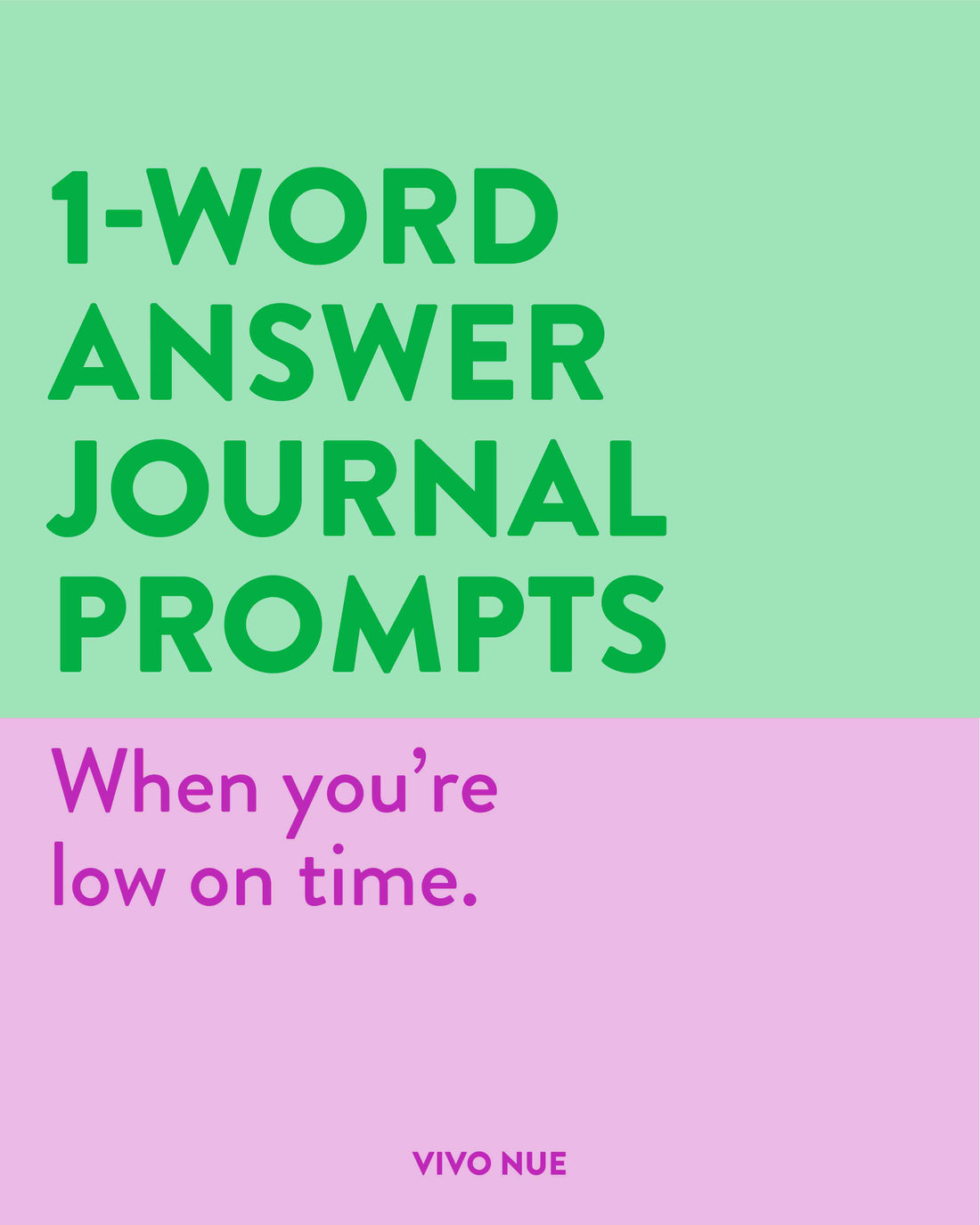Journaling is a practice that holds the power to transform our lives by fostering self-reflection, mindfulness, and emotional awareness. However, for many, the idea of pouring thoughts and emotions onto paper can be intimidating and overwhelming, especially if you're new to journaling or are attempting to reignite this practice after a hiatus.
But what if we could simplify journaling, stripping away the complexity and reducing it to its core essence? This approach takes the pressure off, making journaling accessible to anyone, regardless of their experience or time constraints. In this article, we will explore a minimalist journaling exercise that requires just one-word answers to three simple prompts: "Right now I'm feeling...," "I want my day to be...," and "I am grateful for..." This exercise not only simplifies the journaling process but also serves as an effective tool for self-awareness, intention-setting, and gratitude cultivation.
The Power of Simplification:
The concept of simplification holds great significance in the fast-paced, information-saturated world we live in today. It's often the simple things that have the most profound impact. In the realm of journaling, simplification can be a game-changer, removing the barriers that keep people from embracing this powerful practice.
Traditional journaling often involves lengthy entries, complex introspection, and a significant time commitment. While this depth can be therapeutic for some, it can also deter many from even starting. By reducing journaling to one-word answers, we invite those who might have felt overwhelmed to dip their toes into this transformative pool.
Simplification doesn't diminish the potential benefits of journaling; instead, it focuses on making the process more approachable. It allows individuals to distil their thoughts, emotions, and intentions into concise expressions. The beauty of this minimalist approach lies in its adaptability; it can be a quick daily exercise or serve as an introduction to more in-depth journaling for beginners.
Exploring the Three Prompts:
Now, let's delve into the three simple prompts that form the core of this minimalist journaling exercise:
💚 Right now I'm feeling…
This prompt invites you to pause and acknowledge your present emotional state. Emotions are ever-changing, and by recognising them in the moment, you cultivate emotional intelligence and mindfulness. The power of this exercise lies in its immediacy; you don't need to analyse or judge your feelings. Just identify them with one word. This practice allows you to check in with yourself regularly, providing valuable insights into your emotional patterns and triggers.
💜 I want my day to be…
Here, you set an intention for your day with a single word. Your intention can be anything you desire, such as "productive," "joyful," "focused," or "relaxed." By declaring your desired state for the day, you plant a seed of purpose in your mind. This intention can guide your actions and decisions throughout the day, steering you toward the type of day you want to experience.
💙 I am grateful for…
This final prompt encourages you to practice gratitude, a powerful habit with numerous psychological and emotional benefits. Gratitude shifts your focus from what you lack to what you have. By expressing gratitude with one word, you simplify the act of counting your blessings. It can be as simple as "family," "health," "sunshine," or "opportunity." Cultivating gratitude daily can foster a more positive outlook on life and improve your overall well-being.
The Benefits of Minimalist Journaling:
Embracing a minimalist approach to journaling offers several compelling benefits:
1. Accessibility: Minimalist journaling is incredibly accessible. You don't need a special journal, specific writing tools, or an extended period of free time. All you need is a few moments to answer the prompts.
2. Consistency: The simplicity of this exercise makes it easier to maintain a consistent journaling habit. It's a quick and achievable practice that can be integrated into your daily routine.
3. Stress Reduction: Acknowledging your current emotions and setting intentions can help reduce stress and anxiety. It allows you to gain clarity about your feelings and purpose for the day.
4. Self-awareness: Over time, this exercise fosters self-awareness as you become more attuned to your emotions, desires, and sources of gratitude.
5. Gratitude Cultivation: The gratitude prompt encourages a positive mindset and helps you recognise the beauty in everyday life.
6. Intention-Setting: Setting a daily intention can increase your focus and motivation, helping you work towards your goals.
7. Mindfulness: The act of distilling your thoughts into one-word responses promotes mindfulness by grounding you in the present moment.
How to Incorporate Minimalist Journaling:
Incorporating minimalist journaling into your daily routine is straightforward:
- Choose a Time: Select a consistent time each day for your journaling practice. It could be in the morning to set intentions or in the evening to reflect on the day.
- Set a Reminder: If needed, set a daily reminder on your phone or calendar to ensure you don't forget.
- Keep it Simple: Remember that the essence of this practice is simplicity. Answer each prompt with just one word. There's no need to elaborate.
- Stay Consistent: Consistency is key. Make this a daily habit, even if you only have a minute to spare.
- Reflect and Adapt: Periodically review your journal entries to track your emotional patterns and how your intentions align with your day-to-day experiences.
In a world filled with constant noise and distractions, simplifying your journaling practice can be a breath of fresh air. These three one-word prompts - "Right now I'm feeling...," "I want my day to be...," and "I am grateful for..." - offer a minimalist yet impactful approach to self-reflection, intention-setting, and gratitude cultivation.
By embracing this minimalist journaling exercise, you can unlock the transformative power of journaling without feeling overwhelmed. It's a practice that anyone can adopt, regardless of their experience level or the constraints of their busy lives. Whether you're just beginning your journaling journey or seeking a more accessible way to reconnect with this powerful tool, these three words can serve as a gateway to deeper self-awareness and a more intentional, grateful, and mindful way of living.

